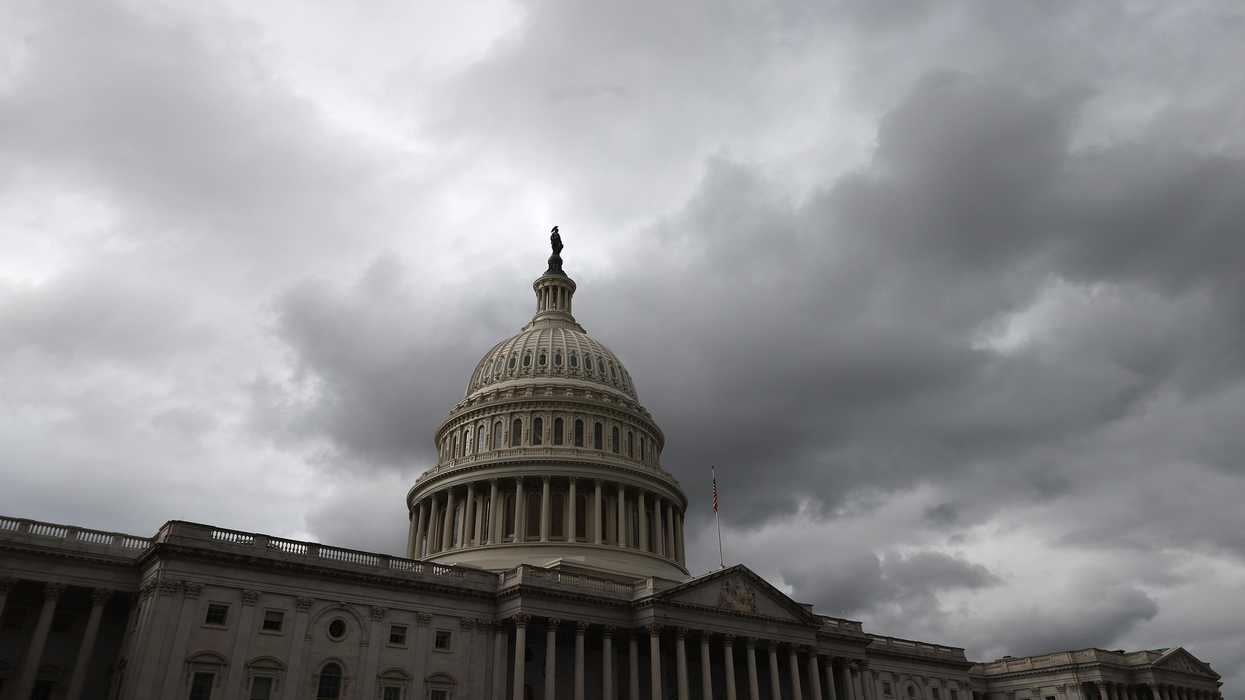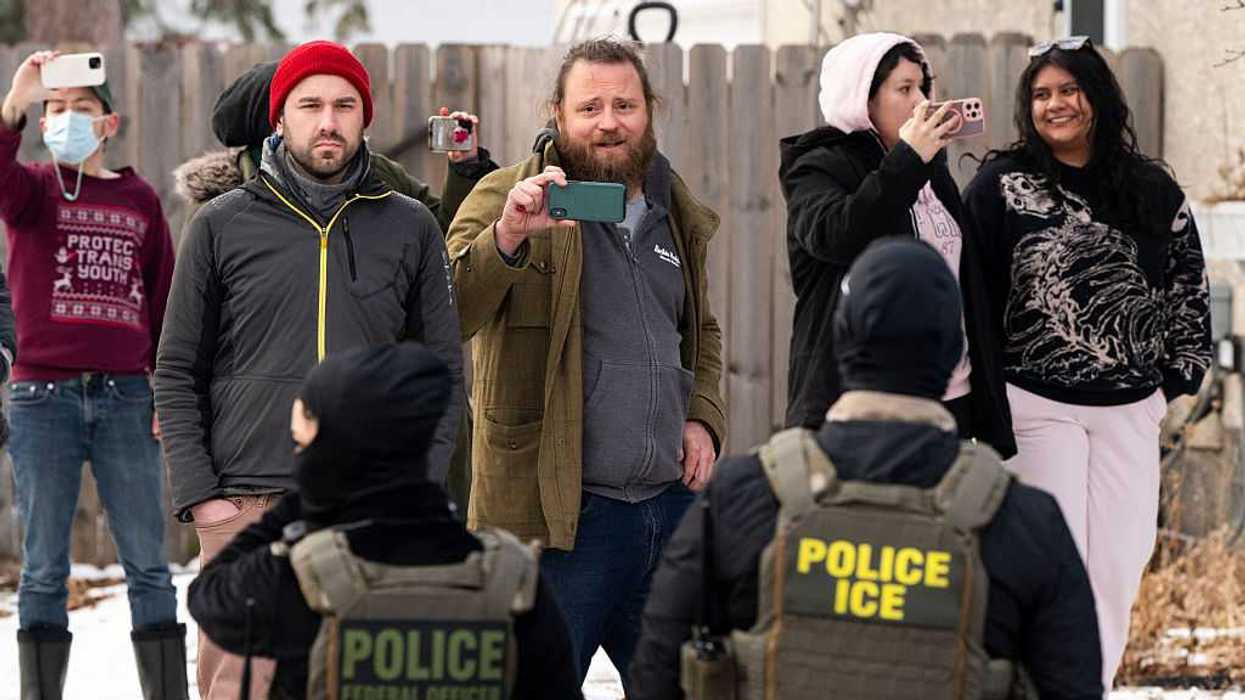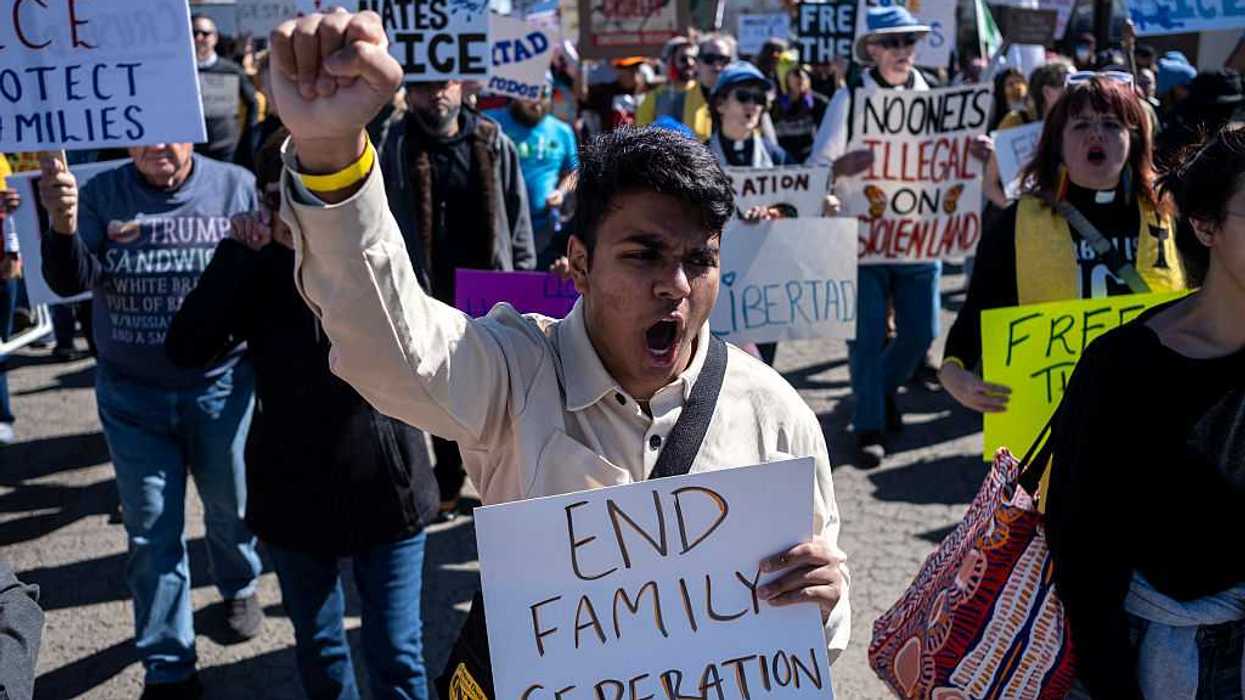What is appropriate to say to those who are serving?
In a hotel lobby on a recent weekend, I walked by a man in fatigues as an older man approached him and said, “Thank you for your service.” The older man added, “I bet not too many people tell you that now.”
The soldier didn’t speak. I kept walking.
I’ve largely stopped randomly thanking service members; it often seems to make both of us uncomfortable. In private, some veterans have told me this ritual annoys them. So as I went about my day, that scene replayed in my mind—with curiosity attached.
What is appropriate to say to an active service member in times when an authoritarian is attempting to subvert our Constitution—and when federal agents (often indistinguishable in fatigues) are the agents used by an authoritarian to do so?
How might I borrow from the anti-authoritarian playbook—expressing gratitude while reminding all of us how fragile our freedoms are?
Here’s the response I landed on, from the heart:
Thank you for upholding the Constitution.
This simple statement shows gratitude for service and recalls the oath.
A quick refresher on the oath taken by those who work for the federal government, the military, and many local law-enforcement roles:
The Oath of Enlistment (for enlisted):
“I, _____, do solemnly swear (or affirm) that I will support and defend the Constitution of the United States against all enemies, foreign and domestic; that I will bear true faith and allegiance to the same; and that I will obey the orders of the President of the United States and the orders of the officers appointed over me, according to regulations and the Uniform Code of Military Justice. So help me God.”
The Oath of Office (for officers):
“I, _____ (SSAN), having been appointed an officer in the _____ (Military Branch) of the United States, as indicated above in the grade of _____ do solemnly swear (or affirm) that I will support and defend the Constitution of the United States against all enemies, foreign or domestic, that I will bear true faith and allegiance to the same; that I take this obligation freely, without any mental reservation or purpose of evasion; and that I will well and faithfully discharge the duties of the office upon which I am about to enter; So help me God.”
Enlisted people are in a pickle right now.
They swear to support and defend the Constitution and to obey the orders of the President and their officers. What happens when orders contradict the Constitution? We’ve seen this question arise with National Guard deployments in U.S. cities.
ICE agents take similar oaths. We’ve seen some enthusiastically obey presidential directives while discarding constitutional protections—especially around the Fourth Amendment’s warrant requirements for arrests, detentions, and entry into homes or businesses. We’ve also seen Fifth Amendment concerns about access to counsel and due process—deportations without hearings. Yes, DHS disputes these are violations. Judges have overwhelmingly found that ICE has violated the Constitution.
I believe the judges—many appointed by the very President whose directives are at issue.
We are living in a time of constitutional crisis. What will we decide?
To give up our freedom for the feeling of safety from (insert the thing you most fear losing)?
Or to remember that freedom is what makes us American, creates opportunity for all, and reject the propaganda that only one man (the authoritarian) can save us?
How are you preparing to respond?
Chicago offers a model of neighbors acting together. Using whistle-blowing networks, residents stand vigil outside an ICE detention center, filming to document who is being held before people are disappeared. They’ve trained themselves to respond nonviolently and effectively to constitutional violations. Accountability is not far off.
Our ability to act together, to care for each other, and to stand clearly for our principles is what will ultimately win. Authoritarians don’t live forever. But We the People endure—if we choose to.
Thank You For Upholding The Constitution was first published on Debilyn Molineaux's Substack platform and republished with permission.
Debilyn Molineaux is a storyteller, collaborator & connector. For 20 years, she led cross-partisan organizations. She currently holds several roles, including catalyst for JEDIFutures.org and podcast host of Terrified Nation. She also works with the Center for Collaborative Democracy, which is home to the Grand Bargain Project as a way to unify Americans by getting unstuck on six big issues, all at the same time. She previously co-founded BridgeAlliance, Living Room Conversations, and the National Week of Conversation. You can learn more about her work on LinkedIn.




















